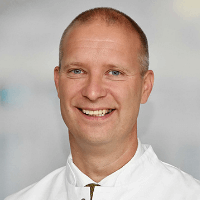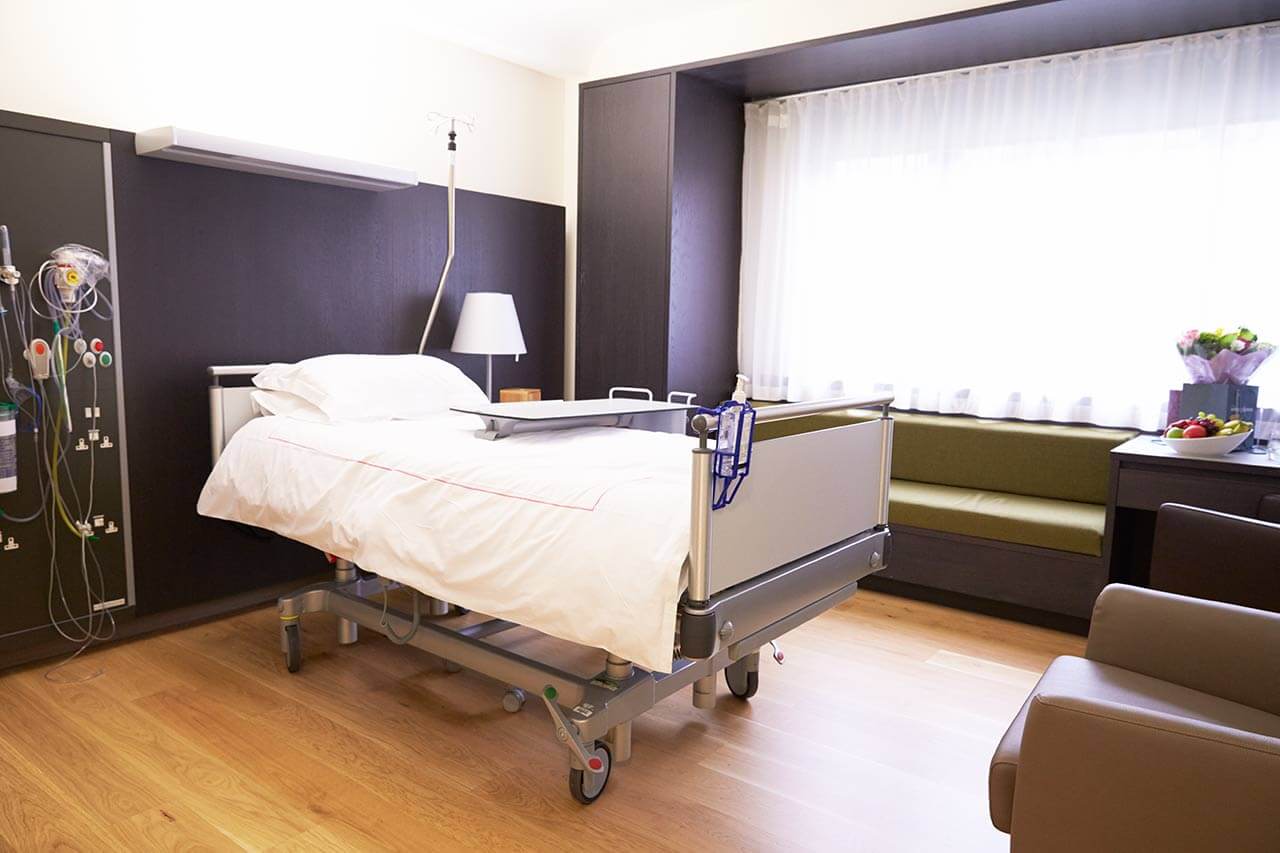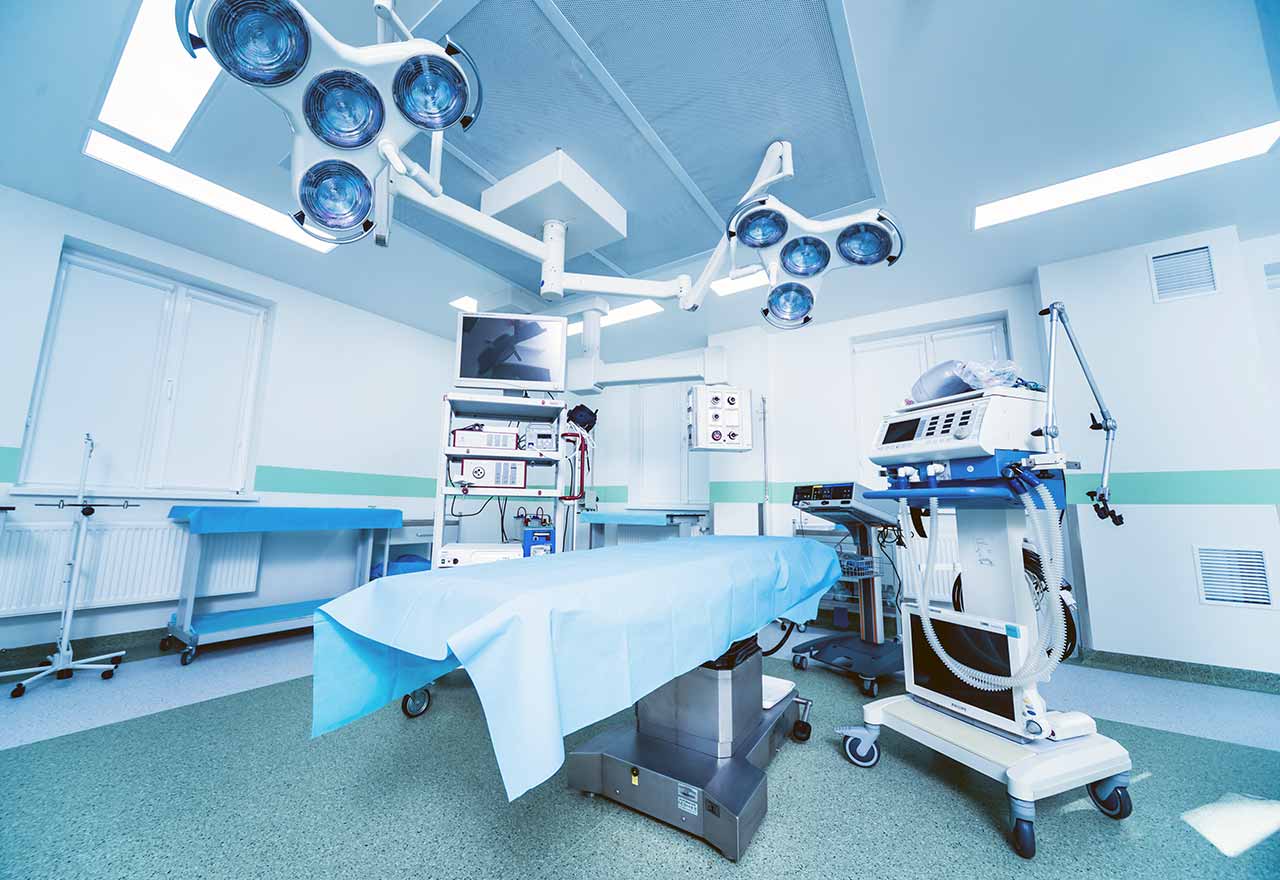
The program includes:
- Initial presentation in the clinic
- clinical history taking
- review of medical records
- physical examination
- urological examination
- laboratory tests:
- complete blood count
- general urine analysis
- biochemical analysis of blood
- inflammation indicators (CRP, ESR)
- indicators blood coagulation
- tumor marker, PSA
- ultrasound of the urogenital system
- preoperative care
- operational reconstruction of the urethra
- symptomatic treatment
- control examinations
- the cost of essential medicines and materials
- nursing services
- full hospital accommodation
- explanation of future recommendations
Required documents
- Medical records
- Genital ultrasound (if available)
Service
You may also book:
 BookingHealth Price from:
BookingHealth Price from:
About the department
The Department of Adult and Pediatric Urology at the Albertinen Hospital Hamburgg offers the full range of diagnostic and therapeutic services for patients with diseases of the urinary system. In addition, the department specializes in the treatment of diseases of the male reproductive system. The department's doctors achieve the greatest success in the treatment of diseases of the kidneys, ureters, urethra, bladder, as well as in the treatment of prostate, testicular and penile diseases. Thanks to long practical experience of the medical staff and excellent medical and technical equipment, the department's specialists admit not only adults, but also children. The department successfully uses the innovative da Vinci Surgical System for sparing surgical treatment of prostate, kidney and bladder cancers. All medical personnel regularly undergo advanced training courses in order to keep up with the times and master the most advanced treatments. In addition, the department's doctors apply a special approach in the treatment of children, since it is very important to establish a trusting relationship with young patients for a successful therapy outcome. The department is headed by Dr. med. Henrik Zecha.
The department's doctors pay great attention to the diagnostics and treatment of prostate cancer, which is the most common malignant disease among men. To treat this type of oncology, the department successfully uses the da Vinci Surgical System. This device allows the specialists to perform high-precision and sparing prostate surgery, which contributes to the fastest postoperative recovery of the patient. During the intervention, all surgical manipulations are performed by the robot's slave manipulators, but at the same time, the commands to the robot are given by the surgeon, who sits at a special control panel and controls every movement of the da Vinci robot. The 3D image of the operating field in multiple zoom allows the surgeon to clearly see all tissues, the smallest vessels and other anatomical structures. Robot-assisted surgery excludes the human factor, such as stress, fatigue, trembling hands, etc. This contributes to the impeccable precision of the surgical procedures and, accordingly, the optimal result of the surgical treatment. The department's specialists have over 10 years of successful experience in performing surgical interventions using robotic systems, which provide millimeter accuracy and do not require long incisions on the patient's body. It should be noted that the team of the department's urologists uses robot-assisted surgery not only for the treatment of prostate cancer, but also for the removal of kidney and bladder tumors.
The department's specialists quite often admit patients with benign prostatic hyperplasia. To detect pathology, the doctors carry out clinical examination, ultrasound scanning, PSA test, and other diagnostic tests. As a rule, the treatment involves the use of minimally invasive and endoscopic surgical techniques, with access through the urethra. In addition, it is possible to carry out laser therapy with a thulium laser and affect the pathological focus with an electric current for transurethral resection of the prostate. The treatment method is selected individually for each patient.
The department's specialists also provide effective treatment of urinary incontinence. When a patient is admitted to the department, the attending physician carefully studies his medical history, carries out the necessary tests and diagnostic examinations, such as ultrasound scanning of the upper and lower urinary tract, stress test, cystoscopy, urodynamic testing, etc. Depending on the diagnostic results, the doctor can prescribe either drug treatment or surgery. The therapy involves the use of the most modern techniques, including botulinum toxin A injections into the bladder, sacral neurostimulator implantation, artificial sphincter implantation, sling interventions, etc.
The primary purpose of each employee in the department is to provide the most sparing treatment in a comfortable environment for the patient, taking into account his individual needs and wishes. Important attention in clinical practice is also paid to the performance of all the necessary postoperative rehabilitation measures for the rapid recovery of the patient and his return to everyday life.
The department's range of medical services includes:
- Diagnostics and treatment of prostate diseases
- Diagnostics and treatment of prostate cancer
- Watchful waiting for prostate cancer (especially in elderly patients with slow progression of the pathology)
- Removal of the prostate, seminal vesicles and lymph nodes (robot-assisted or open prostatectomy)
- Radiation therapy
- Hormone therapy
- Chemotherapy
- Immunotherapy
- Radionuclide therapy
- Diagnostics and treatment of benign prostatic hyperplasia
- Conservative treatment of benign prostatic hyperplasia
- Alpha blocker therapy
- 5-alpha reductase inhibitor therapy
- Surgical treatment of benign prostatic hyperplasia
- Transurethral enucleation of the prostate
- Transurethral resection of the prostate
- Open adenomectomy
- Conservative treatment of benign prostatic hyperplasia
- Diagnostics and treatment of prostate cancer
- Diagnostics and treatment of bladder cancer
- Endoscopic diagnostics
- Photodynamic diagnostics using fluorescence
- Diagnostics using narrow-band imaging
- Surgical treatment
- Radical cystectomy using the da Vinci Surgical System
- Urine diversion
- Partial bladder resection
- Chemotherapy and immunotherapy for metastatic bladder cancer
- Radiation therapy
- Palliative care
- Endoscopic diagnostics
- Diagnostics and treatment of kidney and ureter tumors
- Partial nephrectomy
- Laparoscopic partial nephrectomy
- Robot-assisted partial nephrectomy using the da Vinci Surgical System
- Total nephrectomy
- Open radical nephrectomy
- Laparoscopic nephrectomy
- Nephrectomy using the da Vinci Surgical System
- Nephroureterectomy
- Open radical nephroureterectomy
- Laparoscopic nephroureterectomy
- Robot-assisted nephroureterectomy using da Vinci Surgical System
- Partial resection of the ureter with follow-up replacement
- Ureteral replacement
- Ureteroureterostomy
- Chemotherapy
- Immunotherapy
- Targeted therapy for metastatic tumors
- Partial nephrectomy
- Diagnostics and treatment of urinary incontinence
- Drug therapy
- Botulinum toxin A injection into the bladder
- Sacral neuromodulation
- Minimally invasive TVT and TOT sling procedures
- Sparing pelvic floor surgery
- Laparoscopic surgery
- Robot-assisted surgery
- Artificial urinary sphincter implantation
- Diagnostics and treatment of testicular cancer
- Surgical intervention
- Chemotherapy
- Radiation therapy
- Abdominal lymph node removal
- Combination of several therapies at the advanced stages
- Other diagnostic and therapeutic services
Curriculum vitae
Dr. Henrik Zecha is the Head Physician of the Department of Adult and Pediatric Urology at the Albertinen Hospital Hamburg. Under his guidance, the department received the title of the international da Vinci Robotic Surgery Training Center and became the first medical facility of this kind in Hamburg. Dr. Zecha cooperates closely with colleagues around the world, and also carries out training for specialists all over Europe.
Professional Career
- Since 2017 Head Physician of the Department of Adult and Pediatric Urology at the Albertinen Hospital Hamburg, Hamburg, Germany.
- 2015 - 2017 Senior Consultant, Deputy Medical Director, St. Catherine's Hospital, Stuttgart, Germany.
- 2014 - 2015 Senior Physician at the Training Center of the European Robotic Institute, Prostate Center at the St. Antonius Hospital, Gronau, Germany.
- 2014 Fellow in Robotic Surgery.
- 2011 - 2014 Senior Urologist, specialization in pediatric urology and oncology, Magdeburg Hospital, Magdeburg, Germany.
- 2010 - 2011 Senior Physician, Martha-Maria Hospital, Halle, Germany.
- 2007 - 2010 Assistant Physician, Municipal Hospital in Dresden-Friedrichstadt.
- 2005 - 2007 Assistant Physician, Cantonal Hospital St. Gallen, St. Gallen, Switzerland.
- 2003 - 2005 Assistant Physician, Muri Hospital, Muri, Switzerland.
Photo of the doctor: (c) Albertinen Krankenhaus
About hospital
The Albertinen Hospital Hamburgwas founded in 1907 and nowadays it is one of the largest and the most advanced medical centers in Germany. The medical facility has the status of the Academic Hospital of the University of Hamburg, thanks to which it offers the most advanced diagnostic and treatment methods, which allow the doctors to effectively cure even the most complex pathologies from various medical disciplines. The hospital is famous for the highest level of medical and technical equipment, as well as for the exceptional competence of doctors. The hospital has 1,060 beds for inpatient treatment.
The medical complex includes specialized Departments of Oncology, General Surgery, Urology, Gynecology, Cardiac Surgery, Orthopedics and others. The doctors of the hospital demonstrate high treatment success rates. The hospital has modern operating rooms for sparing minimally invasive interventions using the da Vinci Surgical System and state-of-the-art hybrid operating rooms.
The goal of each hospital employee is to combine highly effective and innovative medicine with compassionate care and an individual approach to each patient. Every year, more than 110,000 patients prefer medical care in the Albertinen Hospital Hamburg, which is an undeniable confirmation of the impeccable quality of the services provided.
Photo: (c) depositphotos
Accommodation in hospital
Patients rooms
The patients of the Albertinen Hospital Hamburg live in cozy and comfortable rooms made in light colors and modern design. Each patient room is equipped with an ensuite bathroom with shower and toilet. A standard patient room includes an automatically adjustable bed, a bedside table, a wardrobe, a table and chairs for receiving visitors. The patient rooms also have a TV and a telephone.
Meals and Menus
The patient and the accompanying person are offered tasty and balanced three meals a day. If for some reason you do not eat all foods, you will be offered an individual menu. Please inform the medical staff about your food preferences prior to treatment.
Further details
Standard rooms include:
Accompanying person
During the inpatient program, the accompanying person can live with the patient in a patient room or a hotel of his choice. Our managers will help you choose the most suitable option.
Hotel
During an outpatient program, the patient can stay at the hotel of his choice. Our managers will help you choose the most suitable option.




